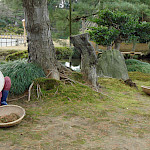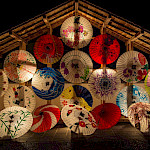6 Jun 2024
JETAA News
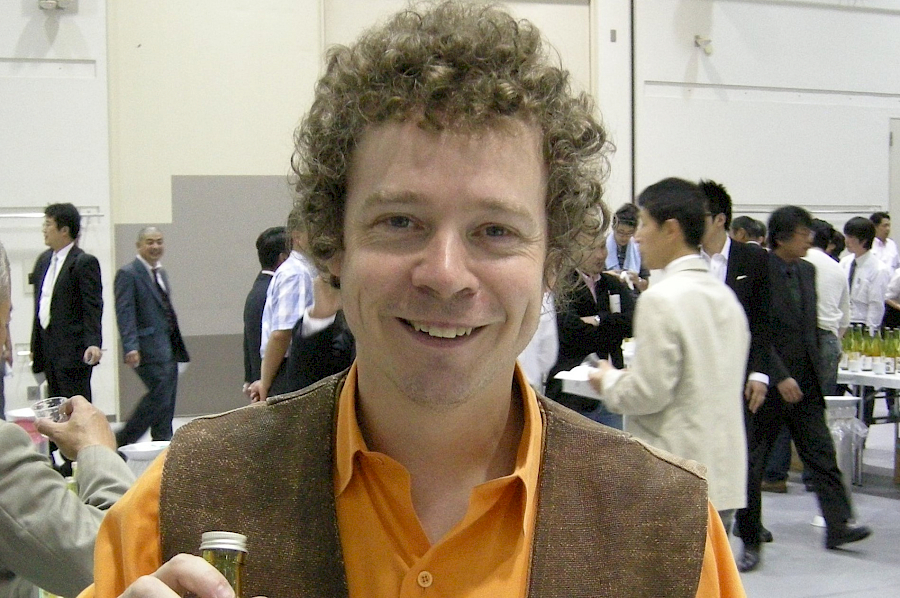
3rd September 2023
JET Spotlight Philip Harper
Philip Harper is a successful sake brewer and author. He is the first non-Japanese person to earn the title of Toji 杜氏 or master sake brewer. He is Toji of Kinoshita Brewing Company in Kyoto. He wrote The Insider's Guide to Sake (1998) and The Book of Sake: A Connoisseurs Guide (2006).
How did you end up on the JET programme, and where did you go?
At university, I did French and German, and as part of that, I lived in what was then still West Germany for a year. The experience of living there for me was so profound . I had no idea about careers I wanted to do, but I knew that I wanted to live overseas again. A friend from university was on the very first year of the JET programme, so I heard that she was doing that, and that's how I learnt about the JET programme.
So, I applied for a Job in an East German university, and I applied for the Jet Programme. I got the call from Japan first. I had thought I would spend my life speaking German, not Japanese.
I was in the second intake of the Jet program in 1988. In those days, when you filled out the application, you could write down the name of a region or city that you would like to live in. I didn't know any, so I left that part blank. There was another section where you could put if you wanted to be in an urban environment or a rural environment. I grew up in the country, so I put down the countryside, and apparently, everyone wants to be in the city. So I was one of 17 people in about 600 in those days. I was in Osaka City for the first three years.
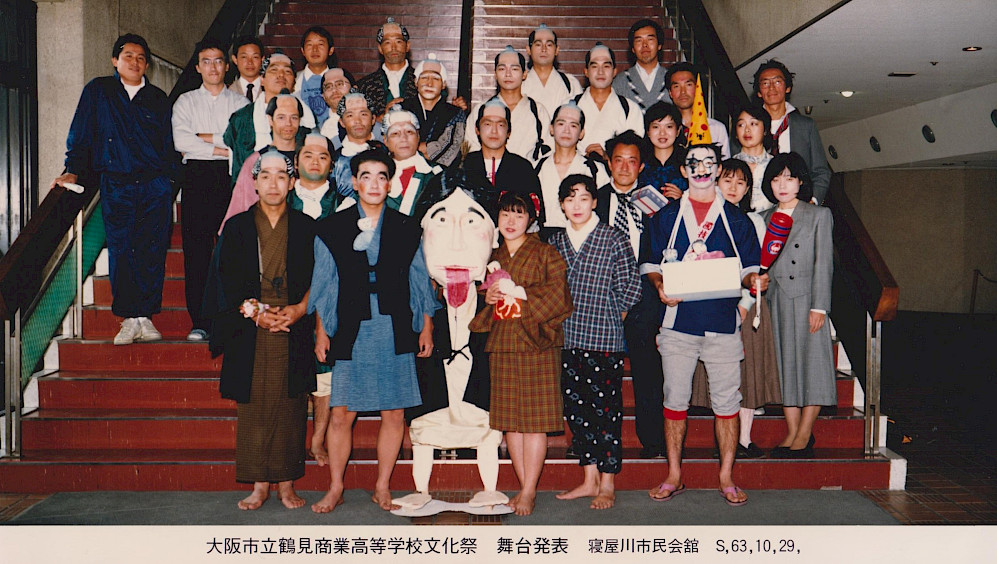
What are your best JET memories?
Because [JET has] been going for over 30 years, and because we were still in the second year, we were going into schools where there had never seen a foreign teacher before. A lot of times, in fact, we were going to cities, towns, or villages where people had never had a foreign neighbour either. Like I said, before I went, I didn't know anything about Japanese culture or anything. Whereas I think now, a lot of people know a lot more about Japanese culture through cartoons or animated films, and we didn't know any of that.
I'd never eaten Japanese food before I got on the plane to Japan because, you know, Japanese food was really not a thing in the UK. Now, Japanese food is much more familiar. I think we were coming to a much less familiar feeling place, extreme for us but also extreme for them. Communities or schools that had never had foreign people there before. It was really extreme in a way, but I really enjoyed my time working in Japanese schools. But it was never a career choice; I never envisioned I would spend my life as a teacher.
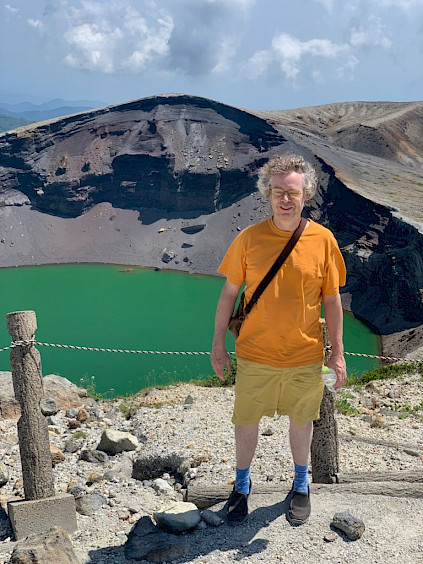
What challenges did you face on the programme?
I didn't speak any Japanese before I went, but I was a linguist. Those were challenges that, for my friends who didn't like learning languages, was just pain. But for me, it was just a fine thing to do. I've always been fairly open-minded about food; I was pleased to try everything. I got on pretty fine with the food, but some of it was just so strange that you don't know what to make of it. I really enjoyed the food. In terms of culture shock, probably the biggest thing was the rural environment and the ideas about education being so radically different. It was a pretty large thing to get your head around, for sure.
There were a lot of people who were not used to working with foreigners. Some English teaching staff who didn't speak a word of English and had never really met anyone foreign before, it was really traumatic for them suddenly having real live foreigners hoisted on them. It was really traumatic for some of those teachers, and that, in turn, boomerangs back. It's a depressing feeling to be so obviously a source of fear and stress for someone, which it obviously was.
If you were one of the people who were posted out in some small rural town somewhere, then it was really shocking for people to have a foreign person to be there. Now, every couple of years, a new person from the JET programme rocks up, and it's just a part of life in more rural communities. As far as internationalisation goes, I think you can't overestimate the positive effect it had on how Japanese people respond to foreign people in a much more natural, healthy way than they ever could have done back then. And I think it works in both directions, too, because people in my generation basically knew nothing about the people I came with all those years ago and all the generations of people; they've all gone home with real knowledge of Japanese culture and Japanese society, and they've taken it home with them. Of eight or nine of my close friends who came to Japan three of us are married to Japanese people, and three or four of us are doing work that is related to Japan in some way. I think that the Japanese government and the Japanese people got good value for money in that sense. It's probably not overstating it to say that all of these people have gone home and been spreading the word about Japan and forging new links. I don't think you can overestimate the enormous opportunities and the effects that that had had on Japanese communities welcoming people, and you take that with you wherever you go.
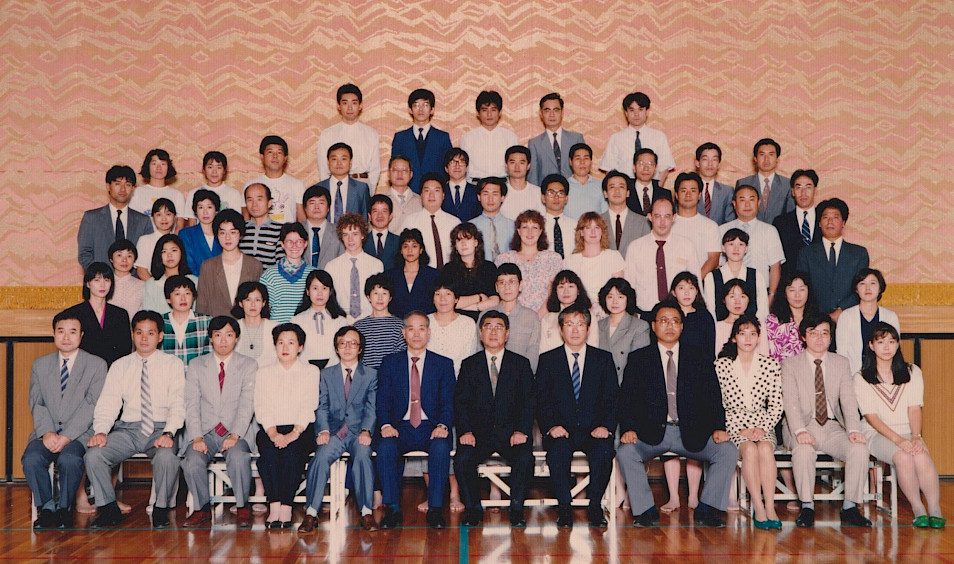
How did your career progress after JET?
I didn't plan to be a teacher for my whole life, and I didn't plan what I was going to do next. At one of the schools I worked at there was a guy in the office, and we met at a school enkai and started talking about music and became friends and started going to concerts and stuff together. He had a friend who had been in a band with him together, and the three of us would go out to concerts and stuff together. We would go out drinking and going to sake breweries together. The quick version of this story is that is that all of us gave up our jobs and became sake brewers. Those two guys were both working in schools; they were civil servants with index pensions and stuff. They gave all that security up to become sake brewers. Thirty years later, all three of us are making sake and talking about music and sake in the same way we did all those years ago.
In my two years on the JET programme, I was already thinking it might be fun to do something sake-related. I was going to work in a sake pub, but you can't get a visa to do that kind of thing, so I got a visa to teach English in a private language school. So, I did that in the days, and in the nights, I would go and work in the sake pub. Then, the following year, I started sake brewing. It was in 1991, and I've never stopped.
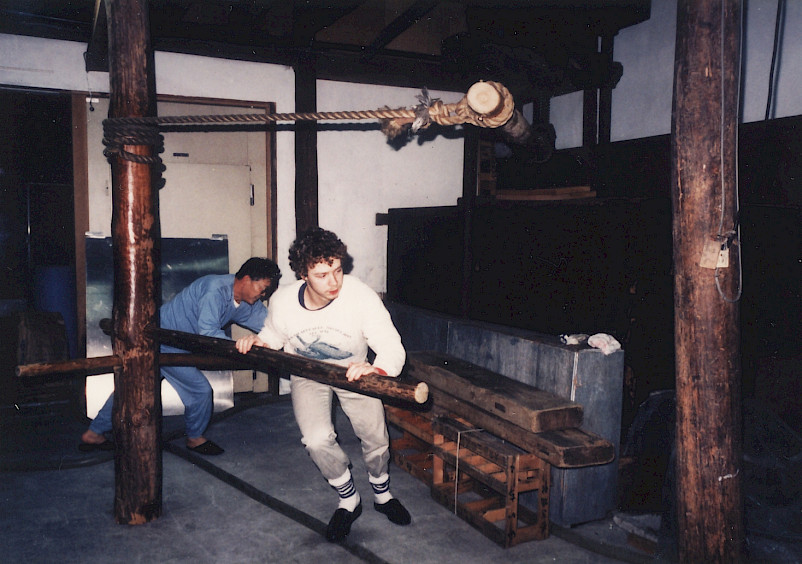
I hear you're working on a new book. Can you tell us about it?
I kind of know what I want it to be, and quite large chunks of it are written. I haven't actually, at the moment, got any offers with my publisher, which is a significant detail in the life of a book. I know what I want it to be; a lot of the ideas are already written. I'm actually talking to a publisher, and if they decide they'll do it, hopefully, next year or the year after, we should get a new book.
I wrote two books previously, way back when, then that publisher went out of business. The 1st one I wrote in 1996 or something, so a long time ago, and in those days, I thought a lot of different things than I think about now. A lot of the things that you're taught when you start drinking sake, I now think, are quite wrong. If you look at the two books I wrote previously, you can kind of see me working through my ideas, and now I know what I think. A lot of it is not what you're told it's supposed to be. This book will be kind of my ideas about sake, how you should behave, and how you should approach it.
How did your first book come about?
I actually started writing it before I made it for a living. I wrote three articles for a Japanese magazine before I started, and I had already started working on the book before I started working as a professional brewer. It probably took me about six years to get it published. Partly because, in those days, I worked in the really old-school system where all the brewers lived in the brewery throughout the season. I worked, usually, 200 days a year without a day off, in residence through spring. Not a lot of stuff got done besides sake brewing. One year of my life is equivalent to like six months of normal people's lives in terms of getting stuff done, so it took a long time to get that book written. I started it before I started doing it for a living. In those days, as weird as it seems now, in those days, there was no internet. Information was all either the written word or the spoken word. That was the only way to get information about it. And there was only one book in English about sake in those days. So when I was writing the book, the audience I had in mind were people like me, who had come to Japan and wanted to learn more about sake but weren't able to read or write Japanese.
I made it so you could put it in your pocket when you went drinking or shopping. One of the things I did in it was introduce about a hundred different sake, and I had a photo of the label so that people who couldn't read Japanese could actually have a label in their hand when they were shopping so they could find the thing they wanted. So I mean, it was really about living here, and I wanted people to be at that level so that when they went out for a drink or went shopping, they could find something.
It never really occurred to us to publish this book overseas because there wasn't much sake overseas, and there weren't many people thinking about it or drinking it in those days. My publisher, in the last few months before we published, suddenly thought to put some information about sake overseas in, and we just didn't have any. It was not on my radar at all. We reached out to a couple of people in America and got some information in the book just in time. It was totally an afterthought on that first book.
Then, a few years later, when we started working on a new book for the same publisher, at that stage, it was already a totally different feeling because there was suddenly a whole load more sake going overseas. And there were people overseas, more people overseas drinking sake or more people selling it and working with it. So, when I started writing the second book, which was only like six or seven years afterwards, for me, there was a real sense of sake's footprint changing overseas. That's gone on ever since; there's been more information about it, and more and more people interested in it and drinking it. I was on a podcast a few days ago, and the three hosts of that were kind enough to say that my book was a big part of that in the early days when they all started. There was a lot of information that they couldn't find anywhere else other than my books, and that was a big push forward on their journeys with sake, which is nice to hear. That's what I was hoping for when I wrote the book.







